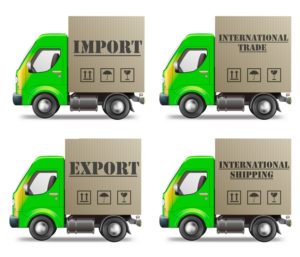by Gabriel Levitt, President, PharmacyChecker.com and Prescription Justice | Aug 4, 2017 | Drug Importation

American medications are usually imported. Now you know.
Yesterday, PharmacyChecker released the findings of our new research that shows 70% of brand name medications sold in U.S. pharmacies are not made in America. Those same medications can be purchased at 70% less in Canada – and even less in other countries. As I’ve written before, there’s a troubling aspect of the public policy debate about drug importation: in many news stories, both policy-oriented and those dedicated to consumers, it seems as if drug importation is currently illegal, which is simply not true. Our data indicates that when Americans walk into their local Walgreens or CVS to fill a prescription, the pharmacist will mostly likely dispense an imported drug – that’s if the patient can actually afford it: 45 million did not fill their prescription last year because of cost.
Our findings come in the wake of an announcement from the Congressional Budget Office about The Affordable and Safe Prescription Drug Importation Act of 2017 (S.469), which aims to make it expressly legal to import lower-cost medications from Canada. CBO’s report shows that if S.469 becomes law, it would shave almost $7 billion off the deficit by 2027. We believe the savings would be much greater. The CBO report reflected deficit savings, but did not include the savings that individuals would also realize from buying lower cost medications from Canada. (more…)
Tagged with: affordable and safe prescription drug importation act, CBO, foreign made, pharmacychecker research, S.469
by Gabriel Levitt, Vice President, PharmacyChecker.com and Sam Werbalowsky, Pharmacychecker.com | Jan 25, 2013 | Drug Prices, Medication non-adherence, Saving Money on Prescription Drugs, Skipping medications
High prescription drug costs make Americans sicker and contribute to our national budget woes, according to a report by the Congressional Budget Office (CBO) released at the end of last year. The report serves as a reminder to always take your prescribed medicines. We view this study as further evidence that access to affordable medication from reputable international online pharmacies improves the health of Americans and decreases healthcare spending.
To put it simply, as consumers’ out-of-pocket drug costs rise, they are less likely to take their medicine as prescribed, which leads to more medical services and increased healthcare spending. The CBO report tells us that the converse follows: when out-of-pocket prescription costs fall there is less need for medical services, and as a result less healthcare spending.
The CBO’s report is based on an analysis of relatively new studies that have tracked out-of-pocket prescription drug costs and overall healthcare spending in employer and government-based health insurance programs. The result is that CBO has now internalized out-of-pocket prescription drug costs in its methodology for calculating the effects of legislation affecting drug costs. This means if a new bill aims to bring down prescription drug prices in the United States or through drug importation, CBO would calculate how many more prescriptions would be filled and estimate the resulting decrease in healthcare spending.
It is critical that our elected leaders and government officials take this into account when considering new laws or taking actions that affect access to affordable medication .Just yesterday, Minnesota U.S. Senators Al Franken and Amy Klobuchar re-introduced a bill, The Medicare Prescription Drug Price Negotiation Act, to enable the federal government to negotiate lower Medicare drug prices with drug manufacturers. Such legislation would most certainly lower drug costs, improve health, and decrease the taxpayer burden on healthcare spending
Tagged with: CBO, healthcare spending, Medicare, Medicare Drug Plans, Medication non-adherence, Prescription Drug Prices



